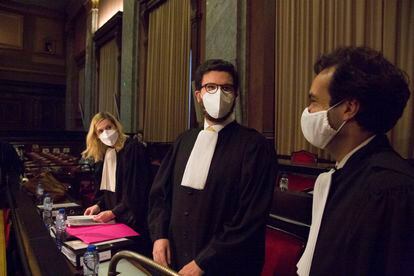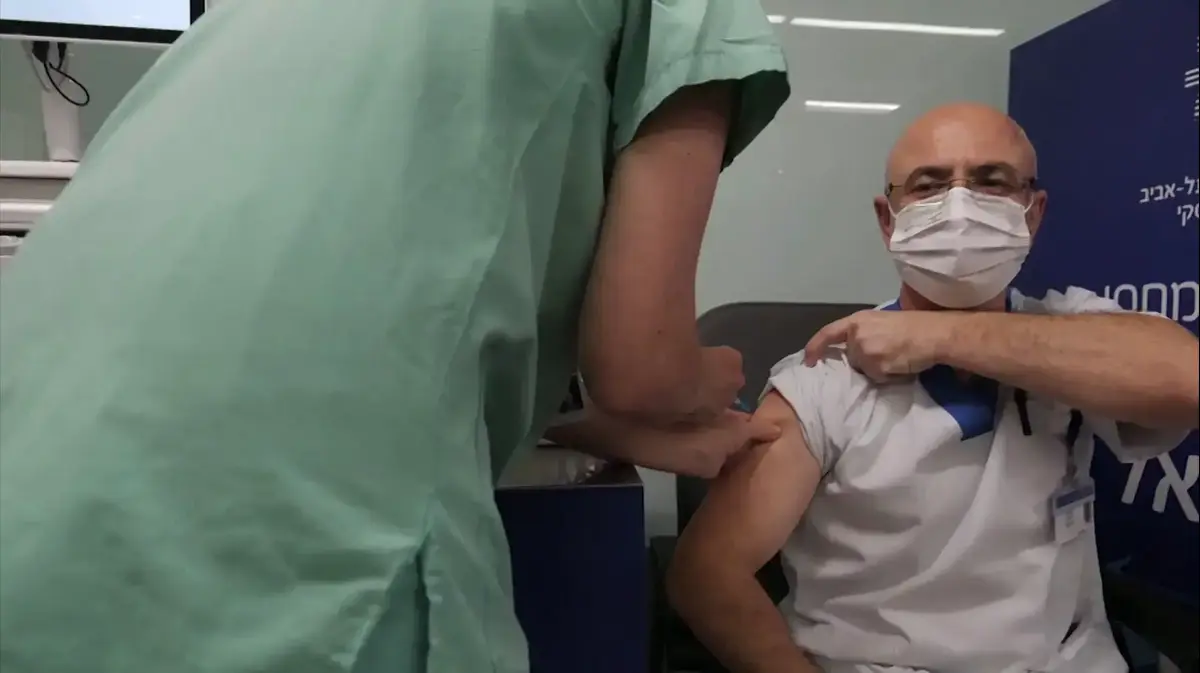The initial assault of the legal battle that Brussels has raised against AstraZeneca for the delay in the delivery of doses has begun this Wednesday in the Belgian capital. Through an emergency procedure, which takes place throughout the day at the Palace of Justice in Brussels, the European Commission intends to force the Anglo-Swedish pharmaceutical company to deliver the vaccines committed by contract with the community bloc. The legal representation of the European Union has described as "flagrant" the failure to supply doses by the pharmaceutical company, which would have caused serious damage in terms of health to the European population: due to accumulated delays, up to a 30% of citizens will not have their immunization on time. The EU, which gives priority to the immediate delivery of vials,He has stated that he will demand compensation of 10 euros a day for each dose not delivered on time from the month of July.
The European Executive raised the procedure against the laboratory last month, when the company informed him that it could not deliver more than 100 million doses until June; the contract stated that by then he should have supplied the total of the 300 million of the agreement. At the hearing, the EU has demanded that it be delivered at least 120 million doses before the end of June (at the end of the second quarter of the year), and the remaining 180 million injections in September (end of the third quarter).
But in reality, the first great judgment of the pandemic era has become a case in what “effort” means in times of coronavirus.
Did or did not AstraZeneca make the “best reasonable efforts” to deliver the committed doses of vaccines in the stipulated time, as contemplated in the contract signed in August 2020?
The judge of the Court of First Instance of Brussels will have to decide on this indeterminate legal concept, whose resolution is expected in June.
The lawyers of the European Commission in the courtroom this Wednesday. © Delmi Alvarez
In the opinion of Rafaël Jafferali, the lawyer who leads the team of five lawyers that defends the interests of the EU, the answer is negative. AstraZeneca did not use all the “tools” at its disposal to meet its commitments. That is to say: it did not make the production of the six factories contemplated in the agreement available to the Twenty-seven. "The problem is not the delay in production, but rather that it has not used all of its tools," Jafferali argued before the judge, in a large room set up for a case that has aroused interest around the world. The EU estimates that AstraZeneca has destined 50 million doses to third countries, such as the United Kingdom and Japan, which could have been provided to the EU bloc.
For his part, Hakim Boularbah, who leads the legal team of the pharmaceutical company, has highlighted the "strong efforts" made by the company. "The production of vaccines usually takes several years," he argued, when his has been obtained in a matter of months. It has also underlined the fact that the laboratory does not make any profit from the contract signed with the Commission. Boularbah has indicated that the timetable set in the agreement was only "estimated".
The European defense has described the laboratory as "opaque" in its relationship with Brussels, with constant contradictions and changes in the plans, and has denounced that two of the plants, those located in the United Kingdom, have given priority to the supply for the British;
however, none of the doses manufactured in them have been destined for the EU.
"AstraZeneca can sign with whoever they want, but they must ensure that this does not affect their deliveries," said Jafferali.
The company "has sold the same vaccine several times to different customers", has finished the defense of the EU.
"AstraZeneca has no interest in favoring one country over another," Boularbah, the laboratory's lawyer, replied to these statements.
Folders with the documentation of the European Commission for the trial Delmi Álvarez
European defense estimates that AstraZeneca currently has a production capacity close to 100 million doses per month, so it should be able to meet deliveries. But it has also outlined the threat of a huge financial sanction, by claiming 10 euros a day for each dose not delivered on time, a sum that can reach astronomical figures, since the laboratory has only supplied 55 million of the 240 million of committed doses until May 2021.
The Commission has repeatedly blamed AstraZeneca for the European delay in the immunization strategy during the first months of the year. Community sources assure that through the trial they do not intend to obtain compensation, but that the doses due are delivered as soon as possible. "The month of September would already be too late", have assured the EU lawyers, who give priority to an immediate immunization of the population. There is an "objective" urgency, they have claimed. "The health of millions of Europeans." As they have defended, the absence of AstraZeneca vaccines implies that there will be 30% of citizens who will not be immunized in the second semester, with the consequent cost in terms of human lives.
The abbreviated trial, whose outcome will presumably be known in June, seeks only to set a kind of urgent provisional measures (the delivery of doses). The substantive process on the breach or not of the rights and obligations derived from the agreement sealed between the Commission and AstraZeneca is scheduled to take place in September, and its outcome could be delayed for months or even years.









